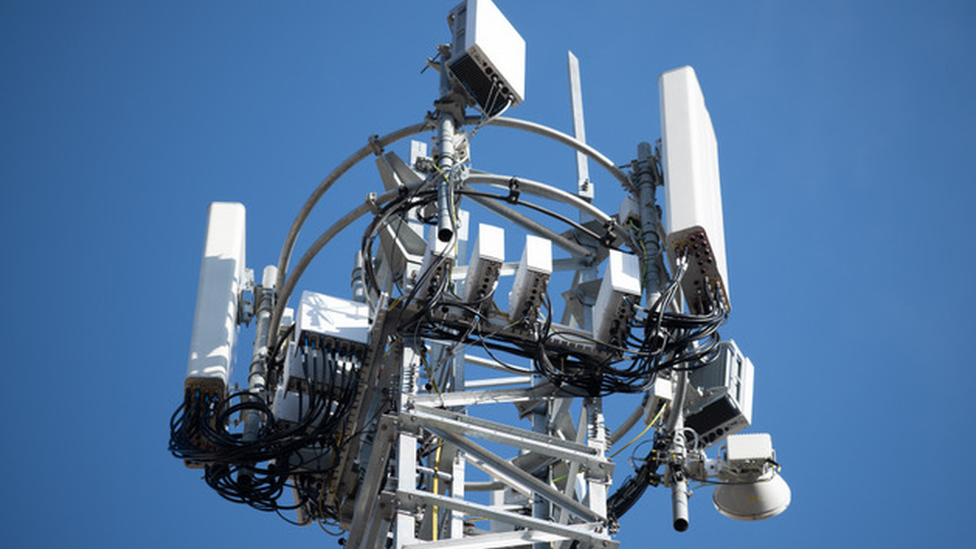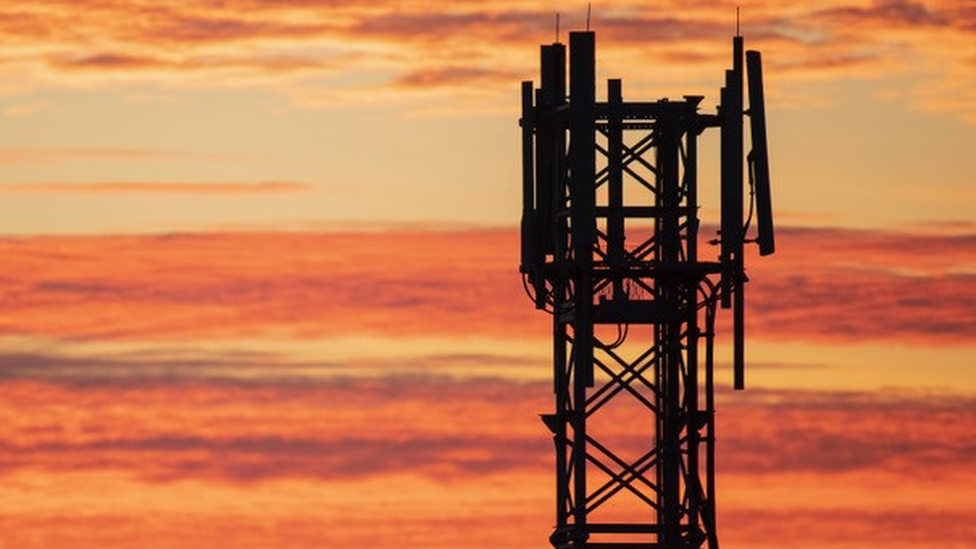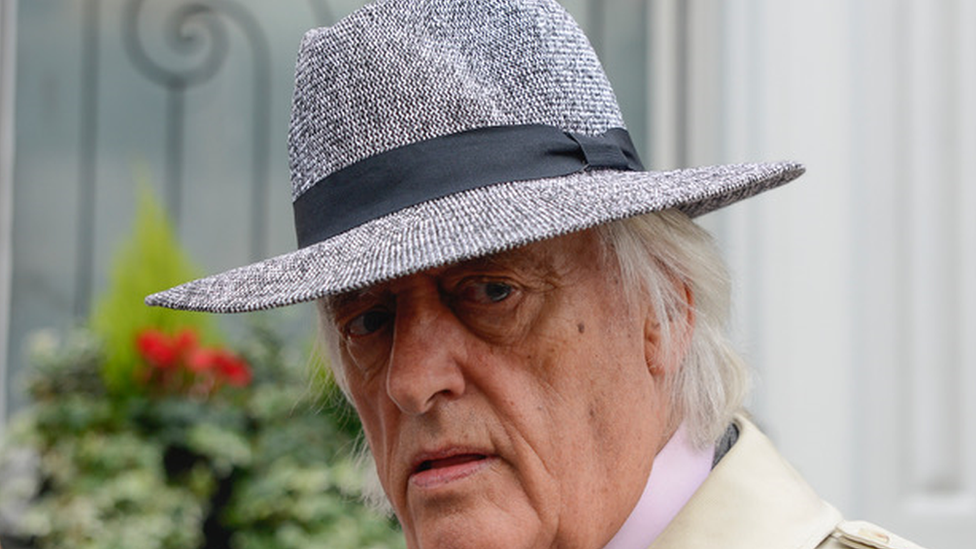Anti-5G campaigners vow to fight on after legal setback
- Published

The case claims 5G networks have health risks and add to harmful radiation from mobile phones and smart devices
A crowdfunded legal case attempting to stop the rollout of 5G has been blocked by a judge.
But the group behind it, which has raised more than £160,000, has said it will continue its battle to try to obtain a judicial review.
The lawyers behind the case, including human rights barrister Michael Mansfield QC, have been involved together in other crowdfunded cases, so far without successful outcomes for their clients.
The case raises questions about the nature of crowdfunded legal action as well as the debate over 5G, which mainstream scientists believe poses no greater risk to health than other wireless technologies.
Radiation claims
A group called Action Against 5G has brought the case using the Crowdjustice platform to raise money. The group says it is "supported by many people nationwide from all walks of life including doctors and scientists".
It argues the government is failing to protect citizens from the health risks from 5G networks, which it says will add to existing harmful radiation from mobile phones, wi-fi networks and smart devices.
The legal action has been brought on behalf of three complainants. Two are battling to stop the rollout of the technology. A third, Rosalyn Rock, claims she has already been harmed by 5G.
She says in April and May 2020 she started to feel ill, suffering blisters to her skin.
She contacted Hounslow Council seeking information about 5G masts and radiation from street lights. The council insisted there was no 5G equipment in the street lighting.
Lorna Hackett, whose law firm Hackett and Dabbs, has worked with Michael Mansfield on this and other crowdfunded cases, also claims to have been made ill by exposure to 5G.
Review refused

The judge said the claimants disagreed with a "large body of international opinion" on the safety of 5G
In the legal document outlining the case, she describes what happened to her when she visited Rosalyn Rock's home in Chiswick, west London, in September 2020 to take a witness statement.
The document explains that when she was shown nearby masts on the street "Ms Hackett experienced a sharp pain in her head, which subsided almost immediately she moved away from the masts".
Even after leaving Ms Rock's home, it continues: "Ms Hackett felt unable to think clearly and spaced-out as if tranquilised or intoxicated. She did not feel capable of driving."
But a High Court judge has now refused the group's application for a judicial review. In her ruling, Mrs Justice Foster said: "The real issue is that the claimants disagree with a large body of international opinion as to the safety of 5G."
She said decisions about the rollout of the technology were for the government and the technical advice it had received "does not support the claimants' concerns".

Michael Mansfield is involved in several other crowndfunded cases
In an update to its donors on the Crowdjustice site, the group reports this setback but continues: "Without delay the amazing Michael Mansfield QC, and barristers Philip Rule and Lorna Hackett, have swiftly lodged a renewal notice seeking permission for a hearing."
Among the expert witnesses quoted by Action Against 5G are Dr Andrew Tresidder, a GP specialising in flower remedies and emotional healing and Prof Tom Butler, a business academic from University College, Cork.
Both were called to give evidence to the Glastonbury Town Council committee inquiring into 5G, which was described by some of its members as having been hijacked by conspiracy theorists.
The government's defence in the case cited advice from the World Health Organization and Public Health England that 5G is safe.
In her judgement Mrs Justice Foster wrote: "The defendants have set out their (rational, scientifically based) view that there is nothing fundamentally different about the physical characteristics of the radio signals produced by 5G compared to those produced by 3G and 4G."
The judge also agreed with the government's argument that the case was "out of time", in other words that it had been brought too late. Correspondence about the case began in 2020, while the UK's four main operators had begun rolling out their networks in 2019 and the government had published its 5G strategy in 2017.
Crowdfunding 'unregulated'
This is not the first such case in which Michael Mansfield and the law firm Hackett and Dabbs have been involved. Their services have also been retained for crowdfunded attempts to scrap factory farming and to force the director of public prosecutions to prosecute Dominic Cummings for allegedly breaching Covid regulations.
The Cummings case has raised over £46,000 and is still collecting donations despite the fact that the Court of Appeal dismissed it in January. It now has a "stretch target" of £60,000 to be raised by mid-August.
The Scrap Factory Farming case is at an earlier stage and has raised around £26,000 of its £60,000 target.
Meanwhile, the crowdfunding page for the Action Against 5G case has a new target of £250,000 to be raised by mid-August.
One experienced barrister warns that legal crowdfunding is unregulated.
Barbara Rich says its importance has grown because there is little or no legal aid for many types of case. But she says there is a lack of transparency: "Contributors do not have a right to any information about a case - its prospects of success, or what its real outcome might be if it does succeed, or even what the lawyers engaged are charging - beyond what its promoter chooses to tell them."
The BBC contacted Michael Mansfield and Lorna Hackett to ask some questions about the case. Their solicitors replied on their behalf making it clear they did not want to give any response for publication.
Related topics
- Published28 May 2020
- Published29 May 2020

